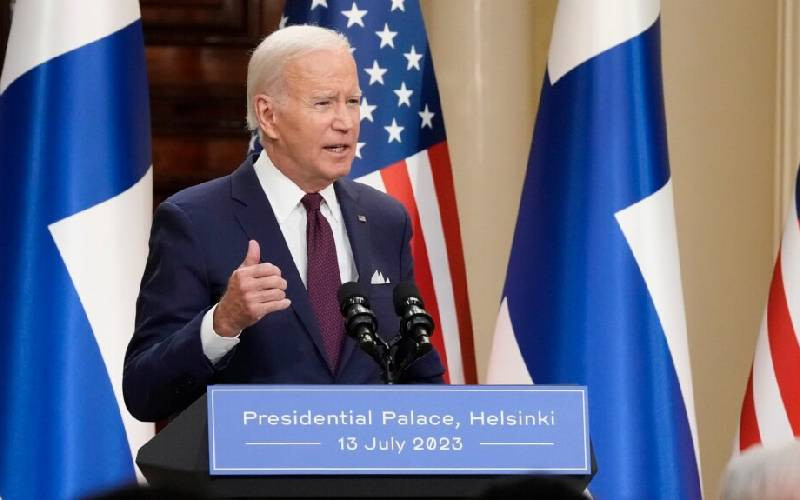×
The Standard e-Paper
Kenya’s Boldest Voice

U.S. President Joe Biden ended his three-nation trip to Europe with a resounding statement of support for NATO, seeking to allay European fears that a change in U.S. administration would mean uncertainty for Washington's ties with its transatlantic allies.
"I absolutely guarantee you. There is no question," he said during a joint press conference with Finnish President Sauli Niinisto Thursday in Helsinki. "We will stay connected to NATO. Connected to NATO beginning middle and end. We're a transatlantic partnership."